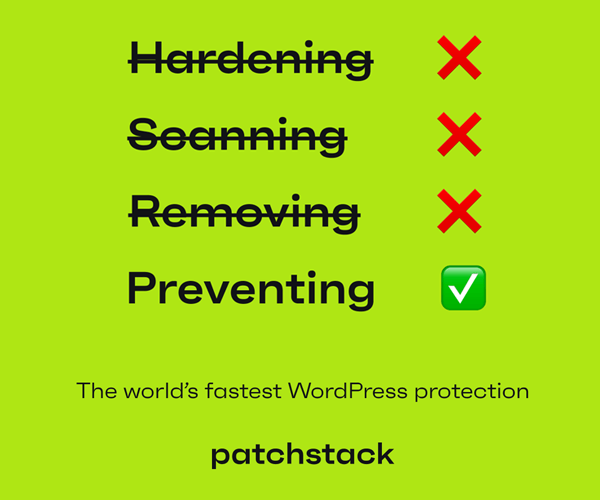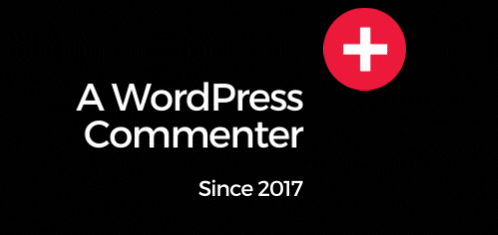WordPress 6.9 Confirmed for Late 2025 With Roadmap on the Way


WordPress is getting another major release this year after all.
Plans to ship WordPress 6.9 in late 2025 were a key focus of Tuesday’s quarterly core committers meeting with project leadership — a shift from April, when Executive Director Mary Hubbard announced there wouldn’t be another major release until 2026. At the time, she attributed the decision to “ongoing legal matters” — a nod to the WP Engine lawsuit — though the slowdown also followed Automattic’s pause in WordPress contributions,
a move that disrupted development and delayed key features.The 90-minute meeting, held under the Chatham House Rule, brought committers and leadership together to discuss release planning for 6.9, the ongoing admin redesign, plugin classifications, support for older WordPress versions, data liberation, the future of default themes, and the new Campus Credit pilot program.
A release date hasn’t been set, but core committers confirmed it’s coming this year and WordPress.org’s WordPress 6.9 development cycle page now states: “WordPress 6.9 will be the final major release of 2025.”
What’s planned — and what Mullenweg wants in 6.9
Committers “explored potential directions” for WordPress 6.9, according to Hubbard’s summary of the meeting, with discussion focused on completing in-progress features including design and writing experience enhancements, updates to the command palette, and continued work on the Block Bindings, Interactivity, and HTML APIs.
Committers also discussed early promotion of a canonical AI plugin focused on backend infrastructure, such as the emerging Abilities API, rather than bundling AI functionality directly into core.
Automattic-sponsored contributor Anne McCarthy is drafting the 6.9 roadmap.
But recent public comments from WordPress co-founder Matt Mullenweg suggest there’s more on his 6.9 wishlist. In May, TechCrunch reported that he wants 6.9 released this year with an admin refresh. Last week, he told the Decoder podcast that collaborative editing would ship this year, “Murphy willing,” referencing the adage that anything that can go wrong, will.
Both are major efforts, and as one core committer told The Repository, “I don’t think either are realistic” if they are to be done thoughtfully and effectively. But work on these features could still progress in 6.9 with their completion more likely in 7.0.
On the Decoder podcast, Mullenweg said Automattic kept developing features during its contribution pause and hinted some of that work could be brought into the open source project. “We had all this stuff developing… it’s real time and really exciting stuff,” he said, though it’s unclear what features he was referring to, and none were mentioned during Tuesday’s meeting.
Renewed push for admin redesign with MP7 plugin on the table
A “significant portion” of Tuesday’s meeting focused on the ongoing admin redesign, according to Hubbard’s meeting notes. While nothing’s locked in, there was early agreement around testing the redesign via the Gutenberg plugin — either as an opt-in experiment or as a separate “MP7” plugin.
The name “MP7” is a reference to MP6, a 2013 “feature as a plugin” that helped shape WordPress 3.8’s admin design overhaul.
Recent efforts to redesign the WordPress admin have been pulled into phase 3 of the Gutenberg roadmap, which focuses on collaboration. Work on this front kicked off in 2023, when Gutenberg Lead Architect Matías Ventura shared his vision for the admin design on WordPress.org. During the 2023 State of the Word, Ventura demoed new admin layouts like grids and kanban views, smarter field connections in the Site Editor, and snappy front-end performance using the Interactivity API. “The idea is that each WordPress can be unique yet familiar to everyone,” Ventura said.
Since then, contributors have continued pushing the admin redesign forward with experiments in real-time collaboration, inline block commenting, and foundational work on DataViews. McCarthy published the most recent public update on the progress of the work last November.
Plugin labels under review with clearer guidance coming
Committers also discussed plugin classifications, including what counts as a “canonical” plugin, and how these labels can help guide users and contributors alike.
The canonical label, revived in recent years, is meant for community-developed plugins that extend Core in officially endorsed ways. During Tuesday’s meeting, committers discussed applying the term more formally, especially in the context of the proposed AI plugin for 6.9.
Other classifications in play include:
- Feature plugins — experimental plugins used to test potential core features.
- Support plugins — maintained tools that provide compatibility or transitional functionality (like the Classic Editor).
- Experimental plugins — exploratory efforts not necessarily bound for core.
Improving discoverability of these plugin types in the WordPress.org plugin directory and enabling contextual activation within the admin, such as turning on collaborative editing directly from the editor, was raised as a longer-term goal.
Default themes under scrutiny as contributors call for a pause
At Tuesday’s meeting, committers also weighed the future of default themes. Some questioned the need to release a new theme each year, pointing to the maintenance burden and suggesting the project could spotlight patterns, style variations, or starter templates instead. Others argued that default themes still play a valuable role in showcasing new features, supporting learning, and inspiring community creativity.
The conversation echoed a recent blog post by core committer Tammie Lister, who was sponsored by Automattic last year to help clear the backlog of theme tickets. Lister proposed pausing default themes to focus on improving design tools, education, and rethinking what a theme should be in 2025.
What’s next
Discussion is ongoing in WordPress Slack, with technical planning for the admin redesign underway in the #core-editor channel. As mentioned, Anne McCarthy is drafting the public roadmap for WordPress 6.9. The next core committers meeting with project leadership is expected in Q3.
The post WordPress 6.9 Confirmed for Late 2025 With Roadmap on the Way appeared first on The Repository.



